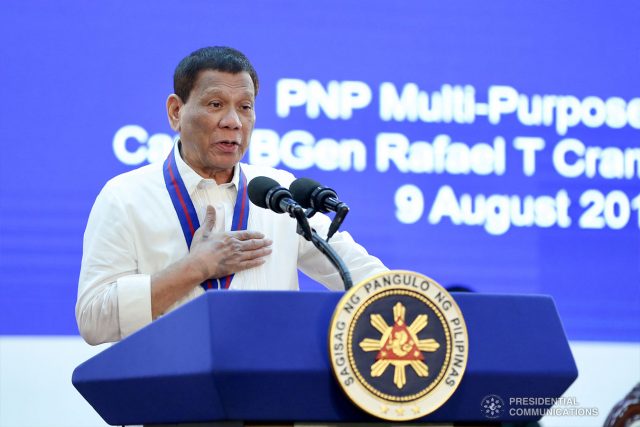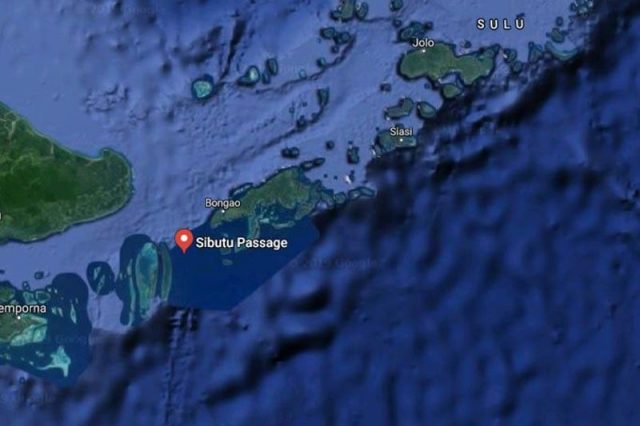
President Rodrigo Duterte ordered foreign vessels to obtain clearance from the government if they intend to pass through the country’s waters following sightings of Chinese warships in Philippine territory.
Presidential spokesperson Salvador Panelo mentioned that it is “to avoid misunderstanding in the future.”
In a statement to reporters, Panelo said, “The President is putting on notice that henceforth beginning today, all foreign vessels that will be passing through our territorial waters will have to get clearance from the proper government authority way ahead in advance before the actual passage.”
“Either we get compliance in a friendly manner or we enforce it in an unfriendly manner. It means that we’ll have to stop them and tell them to move out,” he added.
The directive came after the military reported that Chinese warships have passed through Philippine waters for 13 instances without prior notification to the authorities since June.
Some of them were spotted around Balabac Island in Palawan while others passed through Sibutu Strait in Tawi-Tawi.
According to Defense Secretary Delfin Lorenzana, the vessels were immediately identified as warships since it had gun turrets and other related features.
Lt. Gen. Cirilito Sobejana, commander of the Zamboanga City-based Western Mindanao Command, believed that the latest incident revealed “highly suspect” sailing patterns inconsistent with the international rules on innocent passage.
Sobejana said that the warships had executed a zigzag-like motion instead of sailing in a straight direction as expected of civilian ships when passing through foreign-owned waters.

“An innocent passage, following the sea lanes of communications, (is a movement in a) straight line…If it is curved, that is no longer considered as an innocent passage,” Sobejana said.
The Palace also expressed its concern on the incident and said that the actions were not “an act of friendship.”
Foreign Affairs Secretary Teodoro Locsin Jr. had already ordered the Department of Foreign Affairs’ Office of Asia and Pacific Affairs to file diplomatic protests over the Chinese warships’ presence.
China continues to encroach Philippine maritime territories despite the historic 2016 arbitral ruling that invalidates the Asian giant’s expansive claim in the South China Sea.
It also invokes the Philippines’ rights over its 200-nautical mile exclusive economic zone.
The prevailing nautical law
The Philippines and China are both signatories of the United Nations Convention on the Law of the Sea (UNCLOS), an international treaty among countries dictating nautical laws to be observed.
The convention states that any foreign vessel can pass through a coastal state’s territorial waters without notification if it is practicing innocent passage, a movement where a ship is executing a straight path towards the sea.
It is not supposed to be “prejudicial to the peace, good order or security of the coastal state.”
Actions not considered to be of innocent passage are the following:
- Any threat or use of force against the sovereignty, territorial integrity or political independence of the coastal State, or in any other manner in violation of the principles of international law embodied in the Charter of the United Nations;
- Any exercise or practice with weapons of any kind;
- Any act aimed at collecting information to the prejudice of the defense or security of the coastal State;
- Any act of propaganda aimed at affecting the defense or security of the coastal State;
- The launching, landing or taking on board of any aircraft;
- The launching, landing or taking on board of any military device;
- The loading or unloading of any commodity, currency or person contrary to the customs, fiscal, immigration or sanitary laws and regulations of the coastal State;
- Any act of willful and serious pollution contrary to this Convention;
- Any fishing activities;
- The carrying out of research or survey activities;
- Any act aimed at interfering with any systems of communication or any other facilities or installations of the coastal State;
- Any other activity not having a direct bearing on passage.









